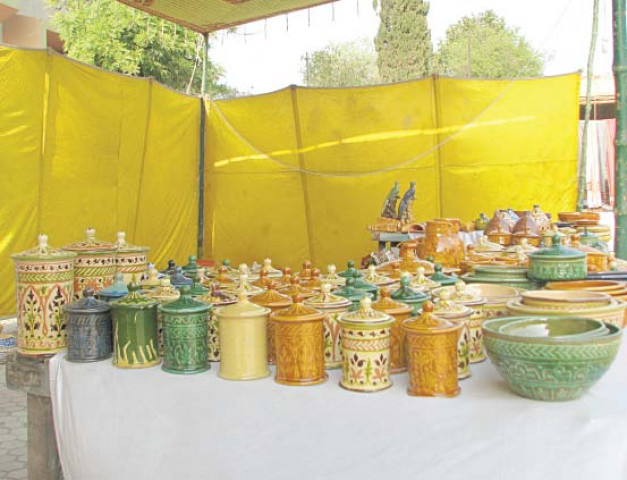Handicraft-makers: Multan chamber seeks support for artisans
Presses govt to set up cottage industry village

Traditional handicrafts from Sindh on display, including magnificent lacquer art (left) and instantly recognisable Sindhi caps featuring Thari embroidery and rilli work (right). PHOTOS: THE EXPRESS TRIBUNE
In a statement, Roomi emphasised that the cottage industry would promote the skills and art of local artisans, particularly women, as there was a great demand for locally made handicrafts in the global market.
The artisans produce products like camel skin lamps, camel bone jewellery and decorative pieces, leather Multani Khussa, wood crafts and blue pottery.
Though the Pakistan Small Industries Corporation (PSIC) has established a network of handicraft display and sale shops, which provide a marketing and promotional platform for the artisans and attract local and foreign visitors, they are still required to make inroads into the international market.
Roomi pointed out that handicrafts were once a major source of livelihood for millions of people, but low prices, lack of proper marketing, insignificant number of exhibition centres and rising costs of business were some of the reasons behind the decline.
“The promotion of handicrafts will not only improve the standard of living of millions, but will also lessen the pace of migration from rural areas to cities,” he said.
According to Roomi, the main hub of handicrafts in Pakistan is south Punjab where around 60% of such goods are manufactured. “This sector can get a boost if Chinese are invited to join hands with them as the industry in China is facing a rising cost of doing business.”
He believed that revival of the sector depended on the development of infrastructure, financial support, direct links between buyers and artisans, elimination of middlemen and improved marketing facilities.
Published in The Express Tribune, February 7th, 2017.
Like Business on Facebook, follow @TribuneBiz on Twitter to stay informed and join in the conversation.



















COMMENTS
Comments are moderated and generally will be posted if they are on-topic and not abusive.
For more information, please see our Comments FAQ